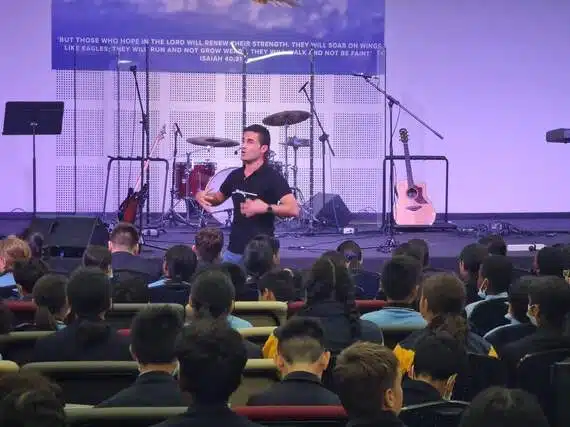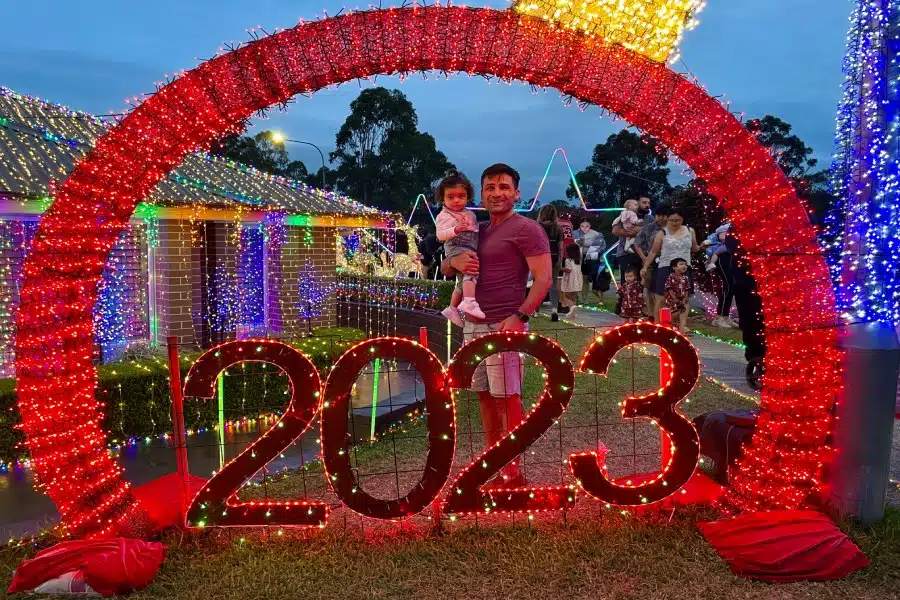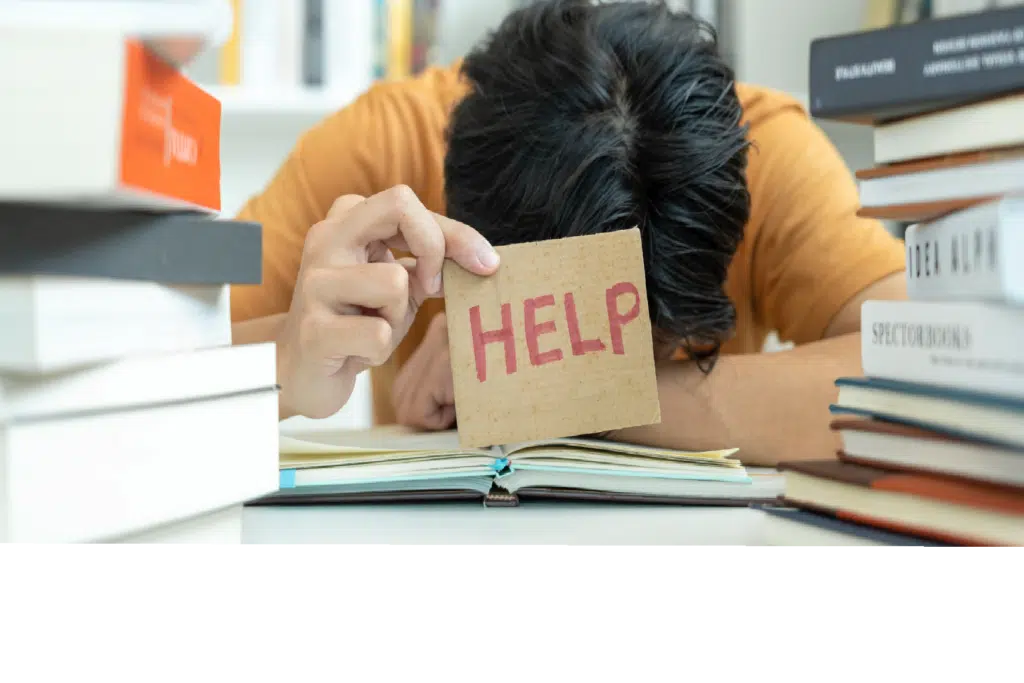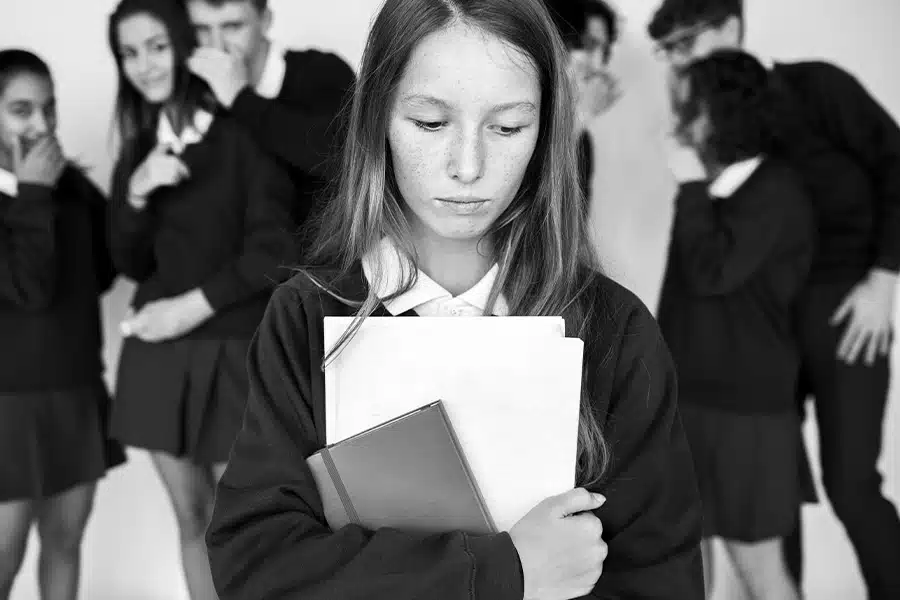The VOICE of a leader

“If you can speak, you can influence. If you can influence, you can change lives.”
(Rob Brown)
Student leaders, above all, have the greatest power and influence to promote mental wellness and create cultural change within a school environment, and the world around them.
And this influence rests on their ability to communicate.
I hated public speaking growing up. In fact, I never spoke in public from a stage, until I was 25. And I was terrified.
It’s a known fact that public speaking is feared by many (at least 75% of the world, as revealed in various studies). I once heard that people would rather die than get up and speak in front of a group of people.
Outrageous hey?
It doesn’t have to be this way.
“Monkeys” on people’s backs stop them from truly discovering, harnessing, and developing their abilities to become the remarkable speakers they can and are called to be.
I was one of them…until I got them off. And I have since been helping others across Australia and internationally to get their monkeys off too.
Public speaking is a “skill” that can be learned.

It’s more important than ever for student leaders to be empowered and equipped with the skills, mindsets, and methods to ignite the power of their voice and to communicate with confidence, courage and conviction.To rise up.
To be light bearers in a world marred by darkness.
To get the “monkeys” off their back…and help their fellow peers to do so too.
Research shows that many teens are struggling to cope with school and life challenges, further exacerbated by the recent pandemic, natural disasters and war. Mental health issues, such as anxiety and eating disorders, addiction and depression have become more common, and the incidents of bullying, self-harm and suicide have increased.
For example, recent statistics show that approximately one in four Year 4 to Year 9 Australian students (27%) reported being bullied every few weeks or more often (Source: Bullying No Way website). However, at least 80% of the audiences that I speak to agree that this figure should be HIGHER and that incidents of bullying are not reported enough.
In my previous article on student leadership here, I shared a bunch of practical strategies to enable students to effectively lead from lockdown.
In this piece, I’d like to go a step further and unpack some of the opportunities available to leaders to use the power of their voice to influence others, drive wellbeing initiatives and positive cultural change.
Traditionally, public speaking (also termed oration) referred to when someone would speak face to face to a live audience. For example, a speech delivered at assembly. This has often been considered the leader’s primary stage to use their voice.
For greater influence and impact, I believe this definition of public speaking and stage can be expanded to include:
- Virtual forms of communication
- Informal scenarios of communication
In other words, this means that the “stage” for student leaders to communicate and influence is not limited to formal settings, but includes other stages and opportunities for them to use their voice to make a positive impact, without being in the spotlight and a large live audience.
Here are 5 leadership stages that students can harness to allow them to rise up and use their voice for good.
STAGE 1: Assembly
“Great leaders must have two things: A vision of a world that does not yet exist, and the ability to communicate that vision clearly.”
(Simon Sinek)

The assembly stage is a powerful platform for student leaders to share their vision – whether it’s a year group assembly or a whole school assembly. To capture attention. To stir up emotion. To ignite imagination. To inspire action.
The voice of the student leader cannot be underestimated.
And it’s not a once-off exercise. Remarkable leaders continually use this stage to build empowerment, inspire optimism, encourage participation and inclusion and reinforce pertinent messages and purpose.
One of my favorite examples of the power of oratory from a live stage was Greta Thunberg’s speech to world leaders at the UN Climate Action Summit, inspiring millions of children around the world as a result. This also reinforces the pertinent need for leaders to be taught the skill of public speaking, which in turn, would give them greater confidence to express themselves with clarity and stand up with courage and conviction for the things they believe in.
Greta’s speech will be remembered for many years to come. Martin Luther King Jr’s I have a dream speech lives till this day. And student leaders can also have their words echoing in the minds and hearts of their peers by using the power of their voice from the assembly stage.
STAGE 2: Classroom + Playground
The classroom and playground is where students spend most of their time informally so it presents itself as a valuable stage for leaders to use their voice for good – through conversations and social interactions, to empower, and uplift fellow peers, and raise awareness to important issues such as mental health, stewardship and inclusiveness. This can be both ad hoc and planned.
But above all, the classroom and playground is a key stage for leaders to use the power of their voice to address BULLYING. Needless to say, bullying is a major issue across all schools and it must STOP.
On Friday 18 March 2022 marked the National Day of Action against bullying and violence – an important awareness-building and strategy day for schools to create practical solutions to address this issue. Bullying affects every single person within a school community – not just the bullied, but also, the bully and the bystanders, as well as staff and parents.

As part of this important initiative, I was honoured to speak at Lighthouse Christian College to about 500 students from Year 5-10, and one of the many schools across Australia where the BEAT Bullying program has been delivered. It’s something I’m deeply passionate about from my own personal experiences.The issue of bullying was brought to light from all perspectives and through my analogy of the “monkeys”. It’s the monkeys on people’s backs that create torment and darkness.
Monkeys create bullies, feeding unkind behaviour.
Monkeys create victims, leaving them feeling powerless.
Monkeys create bystanders…resulting in inaction.
All it takes is ONE brave person to say “hey…this is wrong” to inspire enough people to turn the normal and tolerable into the abnormal and intolerable.
“The world is a dangerous place, not because of those who do evil, but because of those who look on and do nothing.”
(Albert Einstein)
This is where student leaders play a crucial role in using their voice.
Also while at Lighthouse Christian College, I had the opportunity to work with student leaders separately and equipped them with the tools, mindsets and strategies to effectively use their voice to stand up to bullies, to support those being bullied, and to report.
The voice of a leader can ensure bullying incidents are discouraged and reported in an effort to create a school environment where everyone can flourish in a thriving “monkey free” community – because they deserve and have the right to.
STAGE 3: Social media
Even though the pandemic resulted in extensive lockdowns that prevented in person experiences, the reliance on technology for the continuation of education, connection, and normal life operation reached a whole new level.
The use of technology was no longer a cool idea, but a NECESSITY.
So for student leaders, using social media (via the school page) and platforms like Zoom have opened up a whole wave of opportunities, even post pandemic, to use their voice to empower, inspire, rally, and revitalize. After all, Gen Z are digital natives.
Maybe it’s through a video series on the impacts of bullying and ways to deal with it or a collection of stories of hope or cultural awareness. There’s an abundance of possibilities that can be tied to a student leadership group’s vision for the year.
Just like it takes a set of learned skills and courage to step up and speak from an assembly stage, speaking to the camera involves learning a bunch of video communication skills to ensure delivery is with clarity, confidence and conviction.
And this is another powerful stage for leaders to tap into.
STAGE 4: Team meetings
The heart of successful leadership is teamwork and staying accountable. Teamwork requires communication and collaboration and this requires having regular team meetings.
Team meetings represent a fantastic platform for leaders to use their voice to inform, challenge and encourage their fellow team members.
“Successful teamwork is the ability to work together toward a common vision. It is the fuel that allows common people to attain uncommon results.”
(Andrew Carnegie)
But this ability to successfully work together doesn’t happen overnight. In fact, according to Bruce Tuckman, the journey towards becoming a champion team happens in four stages: Forming, storming, norming, and performing. Along the journey, student leaders will need to learn to work with different personalities, communicate their ideas effectively, motivate each other, and also resolve conflict.
And this comes down to learning the skills to overcome fear and communicate effectively, and team meetings are a wonderful stage for leaders to do that.
As the saying goes, teamwork makes the dream work.
STAGE 5: In between the two ears
This final stage precedes every other stage because it’s the stage that students already speak from and speak from first – every time. That stage is their own mind.
SELF-TALK.
I often say:
“The most important words that you ever hear are the words that you say to yourself, about yourself, when you are by yourself.”
And from experience working with thousands of student leaders across Australia and internationally, it’s not lack of skill that stops them from becoming the remarkable speakers they are called to be. Skill can be learnt.It’s their repeated internal dialogue of doubt starting with “AM I….good enough, worthy enough, brave enough etc”.
It’s their debilitating feelings of fear of failure and other people’s opinions.
These fears and limiting beliefs give birth to MONKEYS, causing emotional torment, and blocking human potential.
Think about it.
Imagine the potential that can be realised and the impact that can be made by a student when they are no longer held back by these monkeys?
When their internal dialogue flips from “AM I…” to “I AM…good enough, worthy enough and brave enough etc”?
When they are equipped with the tools, mindsets and strategies to enable them to get the monkeys off their back?
Just imagine.
While it might be ironic that mindset has been placed as the last share in this article, it’s in fact the STARTING POINT to becoming a remarkable speaker.
All the best “How to…” techniques and strategies for public speaking and communication (e.g how to prepare a speech, how to stand up to bullying, how to resolve conflict, how to have a difficult conversation) are of little value if the monkeys are not tackled first.
And this is essentially what students embark upon when undertaking The Remarkable Speaker (Voice of a leader) program to enable them to truly discover, harness, and develop their public speaking abilities and use their influence from the various stages mentioned above to promote mental wellness and create cultural change within a school environment, and the world around them.
I’ll finish off with a favourite saying:
“Once we become FEARLESS, life becomes LIMITLESS.”
This is my hope for the next generation of leaders.
For more information regarding Daniel’s dynamic, fun and impactful public speaking program for student leaders, click here.
For short inspiring videos, follow me on Instagram or Tiktok, or connect with me on LinkedIn.











